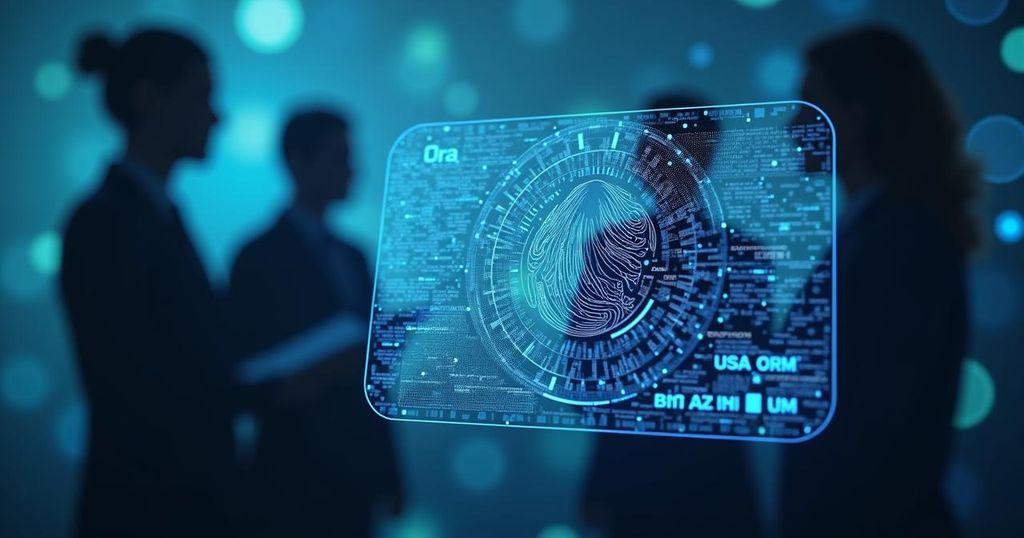eTUNNEL has been awarded a contract by the ITU to provide over one million biometric smart cards for UN organizations. The cards incorporate fingerprint sensors and microchips for secure authentication, with a potential revenue of $75 million over five years. eTUNNEL’s advanced P2N2 biometric engine supports multiple identification methods, with plans for additional biometric products targeted at enhancing UN security measures.
eTUNNEL Inc., a South Korea-based company, has secured a contract with the International Telecommunication Union (ITU) to supply biometric smart cards designed for use within UN organizations. These smart cards will feature a fingerprint sensor and microchip that facilitates secure authentication, enhancing protection against identity theft and fraud. Each card will display the owner’s name and photograph, and will be capable of enabling various digital services such as authentication on computers, email encryption, digital signatures, and electronic vote casting, which are essential functions for the UN’s operations. The contracted project anticipates generating approximately $75 million over a five-year span for eTUNNEL, based on an estimated three-year replacement cycle for the biometric cards. The ITU membership comprises the United Nations and 40 affiliated organizations, projecting a demand of up to one million biometric cards. eTUNNEL’s biometric technology is powered by its P2N2 Integrated Biometric Recognition AI Engine. This advanced system supports multiple biometric modalities including facial recognition, palm vein identification, iris scanning, as well as fingerprinting. Such versatility allows eTUNNEL to adapt its security measures to meet the diverse requirements of various UN affiliates. Additionally, eTUNNEL plans to diversify its biometric offerings by introducing a finger vein scanner for PC logins, biometric locks for secure access, and portable devices featuring both facial and fingerprint recognition capabilities, all intended for UN operational needs. Founded in 2021, eTUNNEL aims to make a significant impact in the market through this collaboration with the ITU. The initiative coincides with the ITU’s efforts to support digital public infrastructure development, as highlighted by the recent SDG Digital event held in partnership with UNDP at UN headquarters.
The development and deployment of biometric cards in organizational contexts, particularly within critical bodies like the United Nations, is becoming increasingly prevalent. Biometric systems offer heightened security by automating user authentication processes that rely on unique biological attributes—such as fingerprints and facial features—thereby minimizing the risk of fraud and unauthorized access. The decision by the ITU to partner with eTUNNEL for biometric card solutions reflects the growing need for enhanced security measures within large-scale, interconnected entities. The expected economic impact of such contracts can be significant, potentially stimulating both technological advancements and market expansion within the biometric sector.
The partnership between eTUNNEL and the ITU fundamentally aims to improve the security infrastructure of UN organizations through the implementation of biometric smart cards. With a potential revenue of $75 million and the ability to supply up to one million cards, eTUNNEL is poised to play a crucial role in advancing digital security measures. The versatility of their biometric technology and planned expansions into additional authentication tools further underscore the importance of robust security systems in international organizations.
Original Source: www.biometricupdate.com





